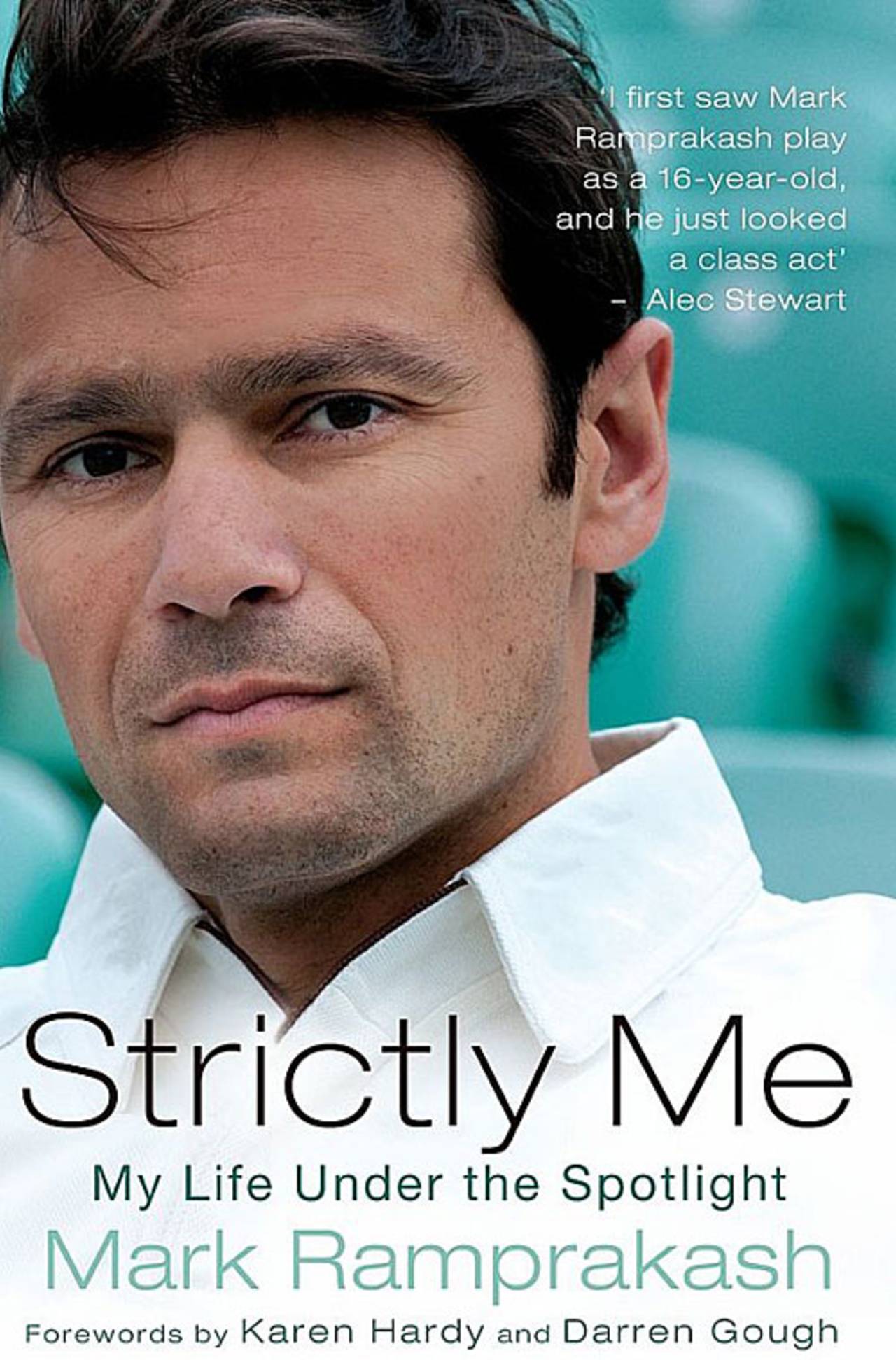Strictly missing something
The controversies, the dancing, the England management's apathy towards Ramprakash are all here, but nothing on why his career ended at 52 Tests
Steven Lynch
23-Jan-2010

Mainstream Publishing
There's something missing in this book: it was published after the Ashes series that dominated the 2009 English summer, but because Mark Ramprakash's life-story manuscript was finished off mid-season, it doesn't address the feverish speculation about him possibly making one more Test comeback and saving the day at The Oval (in the event, Jonathan Trott did that, on debut, which will no doubt make another book in a year or two). And so there's a slight feeling of tripping over that non-existent extra step at the top of the staircase - we know there was no England comeback, but the book doesn't tell us.
And what the book struggles to explain is why Ramps' Test career ended as long ago as March 2002, after 52 caps spread over a dozen or so years and a dozen or so comebacks. Since then, he's been in the sort of form only Don Bradman matched for long - 12,659 runs in first-class cricket at the stratospheric average of 78.14, with 52 hundreds. How could England's selectors overlook that sort of form? The answer presumably lies in the number of chances he was given before that final curtain. But, Ramprakash says, he was rarely given a clear indication of what his role was supposed to be, and seems to have had frighteningly little input from the various management teams he encountered.
For example, he was recalled to face Australia at The Oval in 1993, scored 64 from No. 7 - and was then shoved up to No. 3 in the West Indies the following winter, apparently without any explanation. Unsurprisingly, he did badly and got dropped again: "I required the England coach, and his support staff, to prepare me fully for the big games. I needed to organise my method, and I needed someone to talk to about it. But there was nothing being offered by anyone." Two years later, in South Africa, he was expecting a bit more input from Ray Illingworth, who had taken over as the England team's "supremo": instead, before the team's first warm-up game, Illy wandered over and said, "We want you to kick on here and do well on this tour." Ramprakash replied, "Okay, great"... That was it for three months, he writes.
One can't help thinking that Ramprakash would have fared much better in the current laptops-and-all set-up, and the sad thing is we'll never know quite how good he was. A superb career will always come with a big "but" attached, just like that of Graeme Hick (who, coincidentally, made his Test debut in the same match as Ramps in 1991).
Ramprakash is refreshingly honest, not shying away from the many controversies a volatile temper landed him in over the years. Some cricket purists might jib at the amount of space given to his Strictly Come Dancing exploits (fellow winner Darren Gough and dance partner Karen Hardy provide the two forewords), while some of the season reviews are a bit formulaic: "[Middlesex's] eventual winning margin was very much down once again to the 68 wickets at 18 and 59 wickets at 20 which John Emburey and Phil Tufnell took... Angus Fraser would not want me to forget his 50 wickets at 24.38 either."
But overall it's a decent read. And that missing-something feeling extends to the overwhelming suspicion that England have ignored a fine batsman's best years.
Strictly Me: My Life Under the Spotlight
by Mark Ramprakash
Mainstream Publishing
288pp, £18.99, hardback

by Mark Ramprakash
Mainstream Publishing
288pp, £18.99, hardback
Steven Lynch is the editor of the Cricinfo Guide to International Cricket